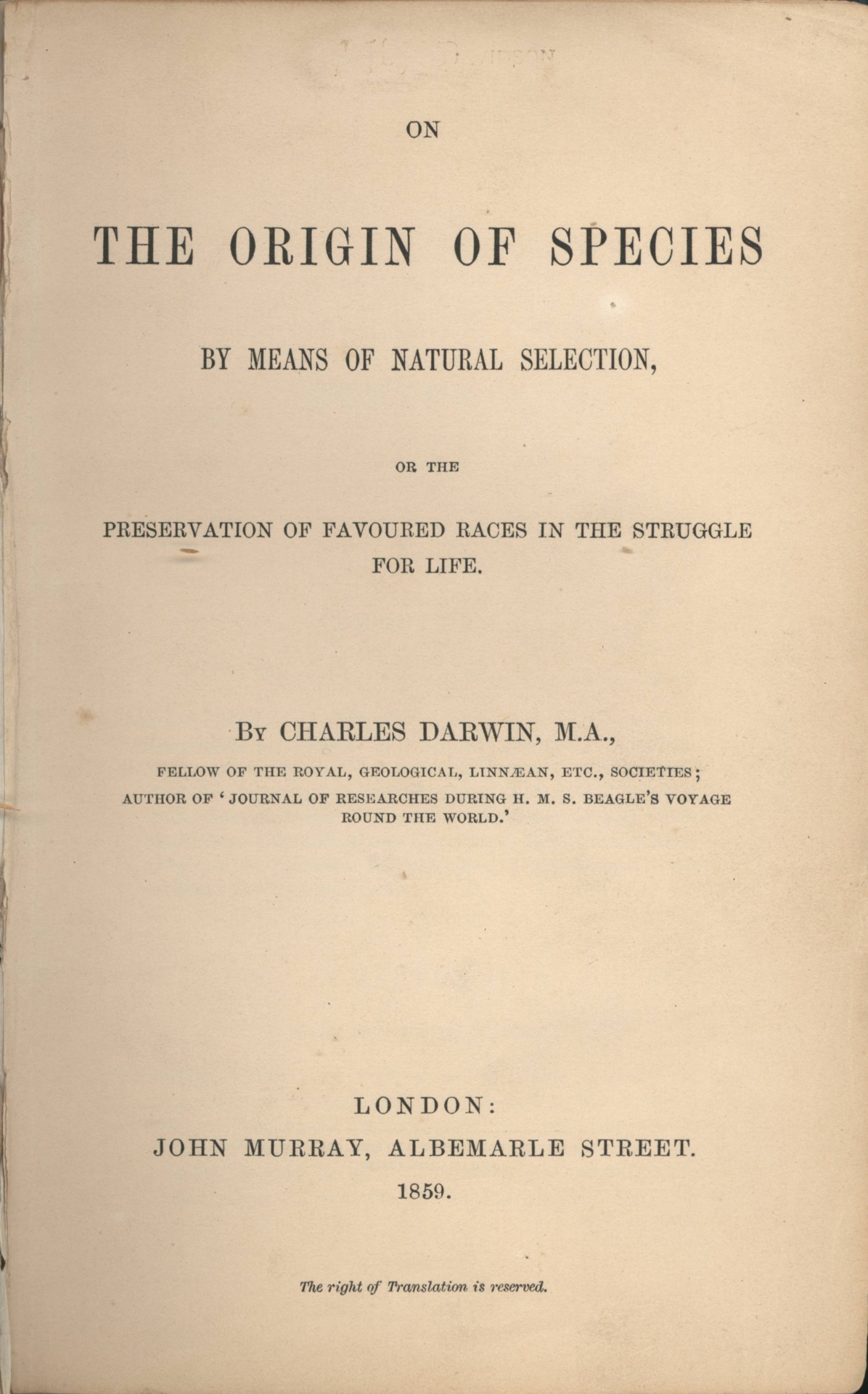@tearhead: First of all, good for you for questioning your beliefs. As goes one of my favorite quotes (from F. Scott Fitzgerald), "The test of a first-rate intelligence is the ability to hold two opposed ideas in mind at the same time and still retain the ability to function." Only by questioning things we think we know do we grow as individuals and as a society.
Now, I hope this doesn't sound too extreme, and it may sound contradictory having just lauded the value of questioning everything, but it's crucial to state that evolution is a fact. There is NO REAL DEBATE between evolution and creationism. It's been tested and proven innumerable times for over 150 years. One of the most powerful tests (and benefits) of a scientific theory is that it can be used to make predictions, and evolution has predicted a myriad of things which have then been discovered to be true. Not to mention that concepts derived from understanding evolution are used every day in tons of different fields, not just expected things like zoology and botany, but organic chemistry like pharmaceuticals and vaccines, and tons of other things that make all of our lives better (even AI concepts that could make our video games more awesome!).
Granted, there are absolutely pieces of the puzzle that are missing (minor as they are) but where lots of folks confuse the issue is that if parts of current evolutionary theory are shown to be wrong, then they say that evolution is wrong. That's simply not how science works. If any new revelations are discovered that contradict current theory, they become incorporated into the theory, making closer and closer to a flawless description of this natural process. We used to think that gravity was exclusively an effect of the mass of an object. It was later shown that object's masses warping space time was a larger part of the effect than their masses alone. But scientist didn't say, "Well, fuck those earlier ideas, this new stuff is the only truth.". Rather, the new discoveries are incorporated into what was already established to be true, creating a deeper understanding overall.
Basically, if Creationism was valid, it wouldn't need to be called "creationism", it would just be "Science".
Creationists have gained power fighting against this mythical idea that Scientists value current thought above all, and any new ideas just get forced out if they don't agree. I hope you can see that science is in fact the exact opposite. It's people challenging current thought every single day in hopes of creating a deeper and more accurate understanding of things. New ideas are always welcome if they can be proven. The ideas that creationists put forth aren't because there's just no proof to any of their claims.
This wonderful Nova special goes into some of the debate in a less heated way than you might find watching some of the actual debates folks have recommended above. It's the story of the trial that ensued after the school board of Dover, PA began pushing to have Creationism taught in science classes.
As to the bigger question of where your Religion fits into this, I, as an Atheist can't really say. But I (and many scientists who are also Christians) see zero contradiction between their being some kind of God, and the natural history of the universe and our species as we currently understand it scientifically. If your God is omnipotent, there's no reason why it couldn't have known exactly how it's creation would turn out. Basically, being able to create a function that perpetuated itself for 13.8 billion years, and still perfectly predict that humans would happen eventually. That kind of God exists separate from time anyway, so that (pretty damn huge) gap between the big bang and me typing this right now wouldn't seem like any time at all to that sort of being.
What our current science does disprove, are many of the scientific claims in the Bible. But this shouldn't seem like a shock, as lots of Biblical claims were disproved hundreds of years ago. God could never stop the Sun in the sky (as he does in Joshua 10:13), because the Sun doesn't move. We move around it. But the people who wrote that story didn't have the knowledge about the solar system that we now have. Similarly, the people who made those creation stories had absolutely no concept of DNA replication, genetics, geology, and other sciences that contradict it before you even get to evolution.
To conclude this giant post (sorry!),I really want to make it clear that I like a lot of the morality in the New Testament, and even as an Atheist, I adore Jesus' message and try to live every second of my life by it. Be kind and loving to all no matter how you're treated by them. Share what you have until you can't share any more. And accept everyone with respect as a human being, regardless of their creed or past deeds. Absolutely beautiful concepts that more people should live by...which are in no way lessened by disregarding the 2,000 year old myths and rejoicing in our ever more deep understanding of the universe and our natural origins.

Log in to comment